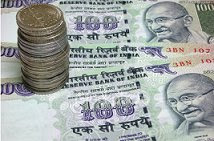
Japan's export slump eased in April, leading to an unexpected trade surplus for the world's second largest economy, official figures show.
Exports fell by 39.1% compared with the same month last year, slightly better than the 45.6% fall recorded in March.
This resulted in a trade surplus of 68.9bn yen ($722.7bn; £452.7bn), much better than economists had expected and Japan's third straight monthly surplus.
Japan's economy shrank at a record rate in the first three months of this year.
'Optimistic'
"Today's release supports our view that exports are past the worst," said Chiwoong Lee at Goldman Sachs.
A slump in exports, triggered by the global economic slowdown that hit demand for Japanese cars, electronics and other goods, led to an economic contraction of 4% between January and March this year.
But some economists are predicting a turnaround in the country's economic fortunes.
Government stimulus and a recovery in exports should ensure that the economy avoids contraction in the current quarter, said Masamichi Adachi at JP Morgan.
"In the short term, we are rather optimistic. But after that, there are many challenges facing the Japanese economy," he added.
Last week, Japan's central bank upgraded its economic outlook, saying the worst of the recession might be over.


